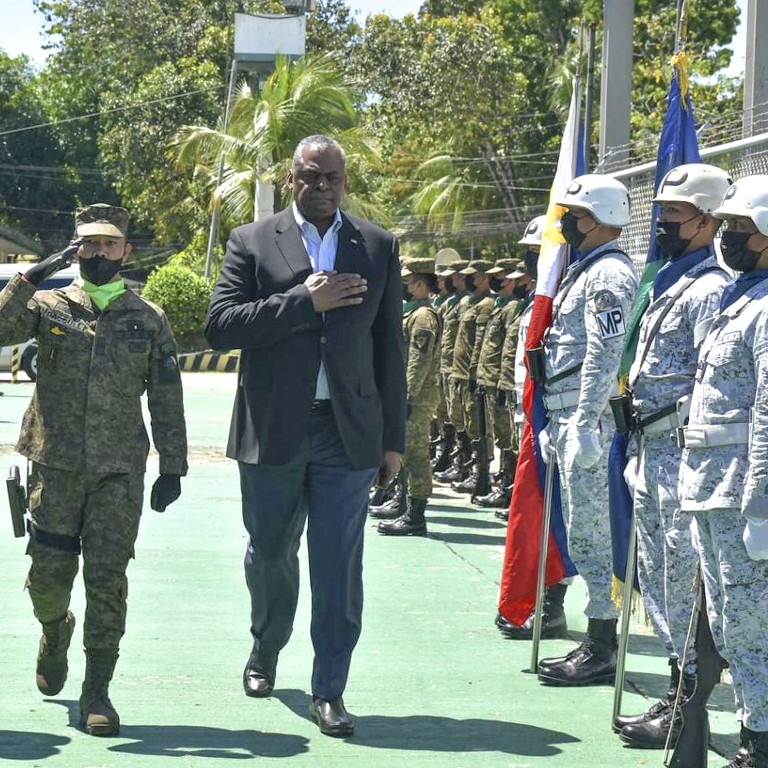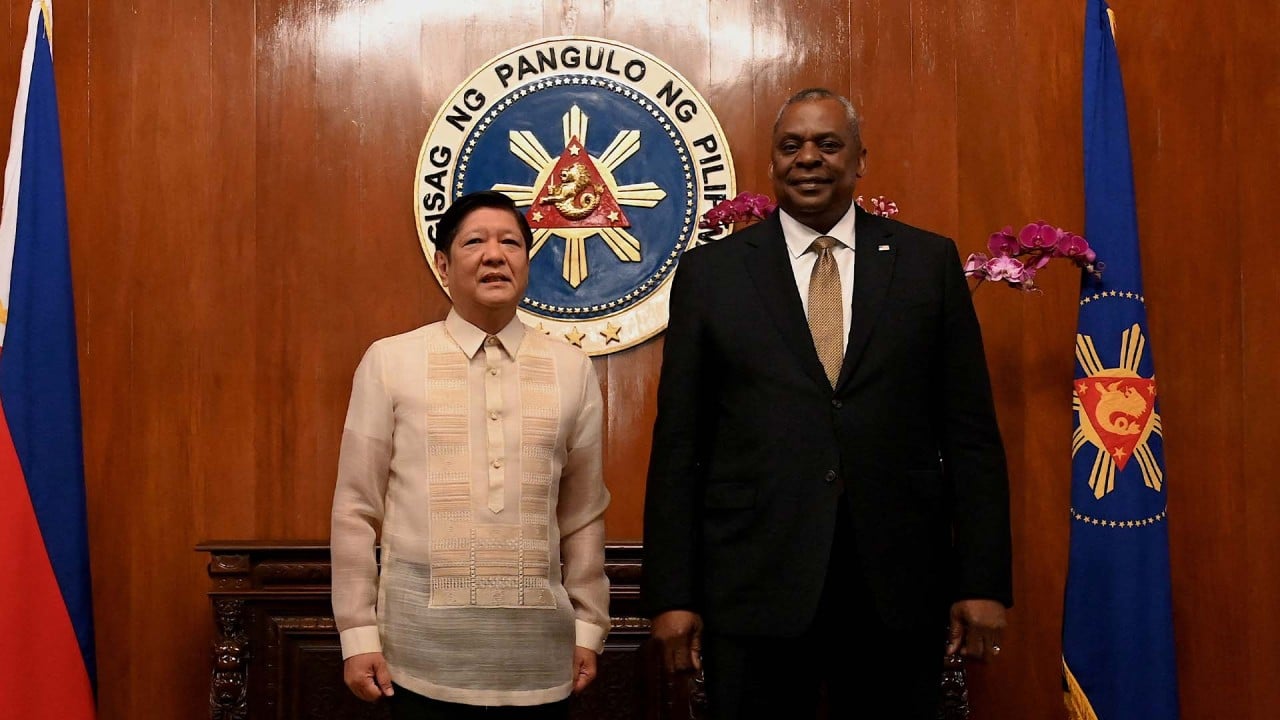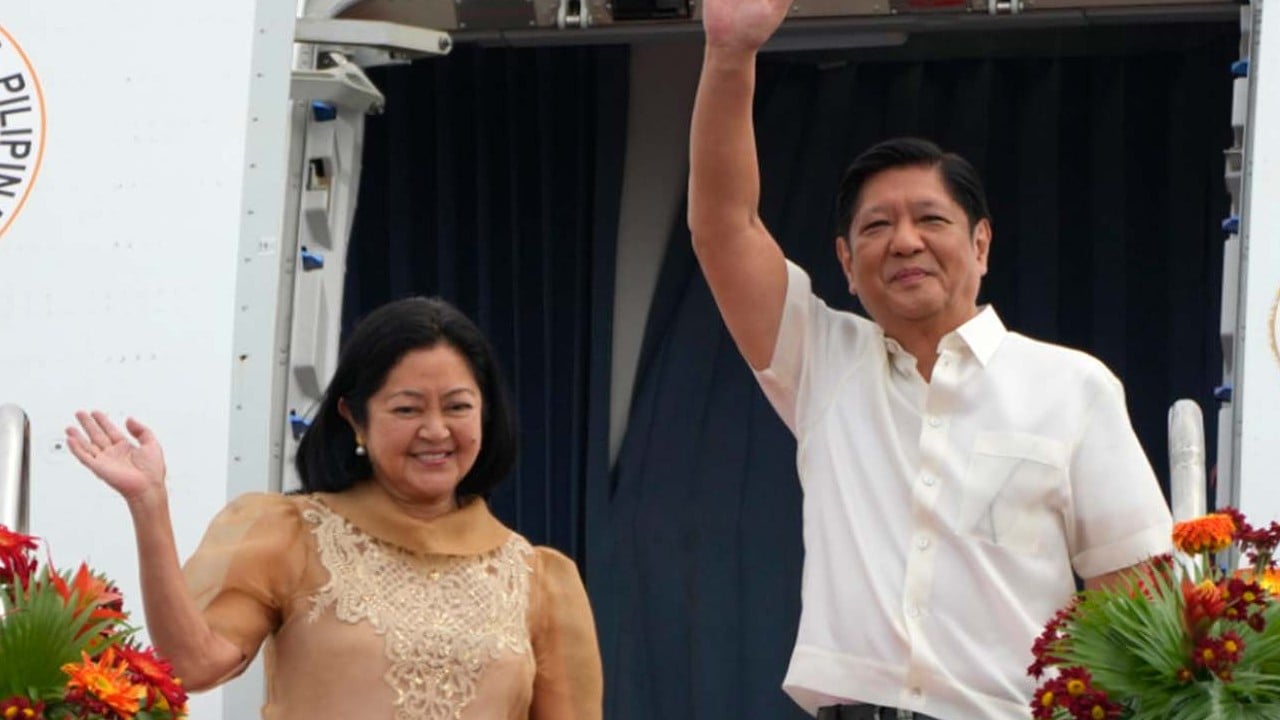
China to take cautious tack in wake of US-Philippine military base deal: analysts
- Manila’s decision was active and driven by concerns about ‘sovereignty and security’
- China will continue as usual in the South China Sea to remind both countries about its presence, observer says
The assessment follows an announcement by US and Philippine defence officials on Thursday that Manila will give US forces access to four more Philippine military bases “in strategic areas of the country”, taking the total to nine.
“The United States, out of its self interest and zero-sum game mentality, continues to step up its military posture in this region. Its actions escalate regional tension and undermine regional peace and stability,” the Chinese embassy in Manila said.
“[China hopes] the Philippine side stays vigilant and resists being taken advantage of and dragged into troubled waters.
“China always holds that defence and security cooperation between countries should be conducive to regional peace and stability, not targeted against any third party, even less to harm the interests of a third party.”
The bases deal was announced during US Defence Secretary Lloyd Austin’s visit to the Philippines, as part of his Asia tour aimed at countering rising China’s influence in the region.
The US military already has access to five sites in the Philippines, including the Cesar Basa Air Base and Fort Magsaysay near Manila. There are also bases in central Cebu, Palawan and in the country’s south.
While the new sites have not been identified, it has been widely reported that most will be on the main island of Luzon – the closest Philippine land mass to Taiwan – where the US already has access to two locations.
The fourth will reportedly be on the western island of Palawan, which faces the Spratly Islands in the hotly contested South China Sea, taking the number of sites there to two.
Austin said he and acting defence secretary Carlito Galvez “discussed concrete actions to address destabilising activities in the waters surrounding the Philippines”.
“We remain committed to strengthening our mutual capacities to resist armed attack,” he said.
US, Philippines boost security, prepare for ‘flashpoints’
Zhang Baohui, an Asia-Pacific studies professor at Lingnan University in Hong Kong, said the lack of detail about the agreement suggested there was little reason for China to be concerned.
“If these new arrangements allow the US to base offensive military capabilities, Beijing should worry a lot. If, however, they are mostly for logistical purposes, Beijing should have less concerns,” he said.
China and the US are engaged in an intense rivalry in the region, particularly in the East and South China seas where concerns are growing over China’s military deployments.
In addition to ongoing sovereignty disputes between Beijing and its neighbours, there are also worries that countries in the region will be forced to choose between the two big powers.
Zhang Mingliang, a Jinan University professor who specialises in Southeast Asian studies, said Manila’s growing insecurity over its sovereignty was driving its increased defence cooperation with the US but expanding US access to its bases would only harm the Philippines’ relations with China.
“The pressure that the Philippines feels directly on issues such as security and sovereignty is at the root of its decision to actively accept and engage in the US’ Indo-Pacific strategy,” Zhang said.
“The Philippines is actively involved.
“China is not happy to see the Philippines’ move. [It] has openly criticised [the Philippines] multiple times. It is obviously a setback for their relations.”
Philippines’ Marcos Jnr to meet Japan’s Kishida in 5-day Tokyo trip
Collin Koh, a Southeast Asian maritime affairs specialist at the S. Rajaratnam School of International Studies at Nanyang Technological University in Singapore, said the agreement was unlikely to prompt Beijing to review its relationship with Manila.
Koh said Beijing’s main leverage with Manila was economic and taking any such action carried risks.
“[China] has to tread the ground quite carefully … Using this economic leverage by, say, withdrawing investments or reducing its commitment to those economic projects, I think it’s going to backfire on Beijing,” he said.
Nevertheless, China would not “underestimate the gravity” of the agreement and would continue its usual activities in the South China Sea to remind Manila and Washington of its presence, Koh said.
“I think one sort of manifestation of what Beijing may do to show is these recent agreements are not changing anything at all,” he said.
“We are likely going to see continued day-to-day activities such as you have seen … Chinese and American forces shadowing or even at times appearing to disrupt Philippine activities.”


 - Kawala Xie.jpg?itok=NogZcyZ-&v=1661304068)

